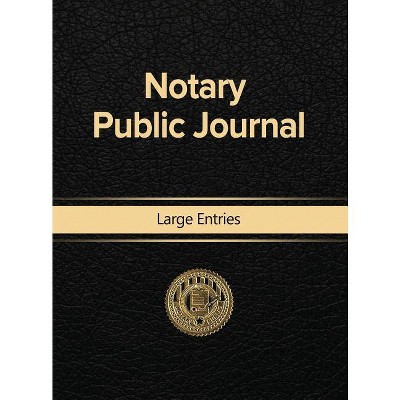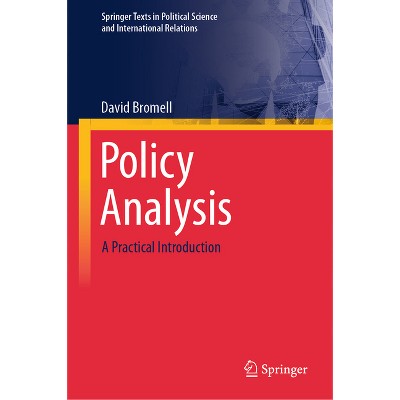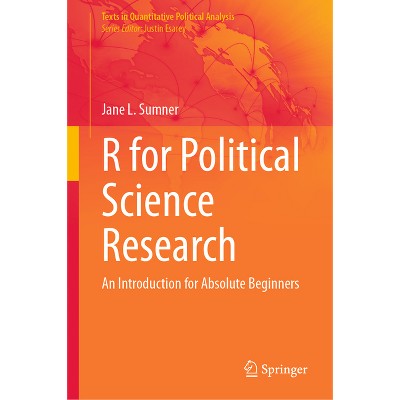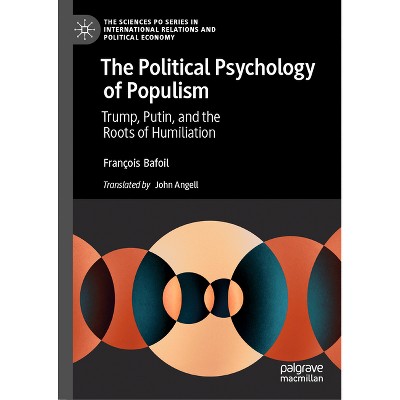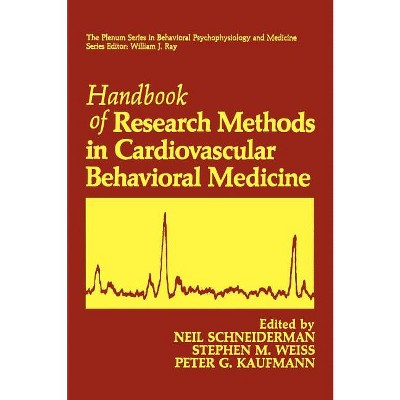Sponsored

Quantitative Methods for the Social Sciences - (Springer Texts in Political Science and International Relations) 2nd Edition (Hardcover)
In Stock
Sponsored
About this item
Highlights
- This textbook offers an essential introduction to survey research and quantitative methods with clear instructions on how to conduct statistical tests with R. Building on the premise that we need to teach statistical methods in a holistic and practical format, the book guides students through the four main elements of survey research and quantitative analysis: (1) the importance of survey research, (2) preparing a survey, (3) conducting a survey and (4) analyzing a survey.
- About the Author: Daniel Stockemer is Konrad Adenauer Research Chair in Empirical Democracy Studies and Full Professor in the School of Political Studies at the University of Ottawa, Canada.
- 141 Pages
- Political Science, General
- Series Name: Springer Texts in Political Science and International Relations
Description
Book Synopsis
This textbook offers an essential introduction to survey research and quantitative methods with clear instructions on how to conduct statistical tests with R. Building on the premise that we need to teach statistical methods in a holistic and practical format, the book guides students through the four main elements of survey research and quantitative analysis: (1) the importance of survey research, (2) preparing a survey, (3) conducting a survey and (4) analyzing a survey. In detail, students will learn how to create their own questionnaire on the basis of formulating hypotheses; sampling participants; disseminating their questionnaire; creating datasets; and analyzing their data. The data analytical sections of this revised and extended edition explain the theory, rationale and mathematical foundations of relevant bivariate and multi-variate statistical tests. These include the T-test, F-test, Chi-square test and correlation analyses, as well as bivariate and multivariate regression analyses. In addition, the book offers a brief introduction to statistical computing with R, which includes clear instructions on how to conduct these statistical tests in R. Given the breadth of its coverage, the textbook is suitable for introductory statistics, survey research and quantitative methods classes in the social sciences.
From the Back Cover
This textbook offers an essential introduction to survey research and quantitative methods with clear instructions on how to conduct statistical tests with R. Building on the premise that we need to teach statistical methods in a holistic and practical format, the book guides students through the four main elements of survey research and quantitative analysis: (1) the importance of survey research, (2) preparing a survey, (3) conducting a survey and (4) analyzing a survey. In detail, students will learn how to create their own questionnaire on the basis of formulating hypotheses; sampling participants; disseminating their questionnaire; creating datasets; and analyzing their data. The data analytical sections of this revised and extended edition explain the theory, rationale and mathematical foundations of relevant bivariate and multi-variate statistical tests. These include the T-test, F-test, Chi-square test and correlation analyses, as well as bivariateand multivariate regression analyses. In addition, the book offers a brief introduction to statistical computing with R, which includes clear instructions on how to conduct these statistical tests in R. Given the breadth of its coverage, the textbook is suitable for introductory statistics, survey research and quantitative methods classes in the social sciences.About the Author
Daniel Stockemer is Konrad Adenauer Research Chair in Empirical Democracy Studies and Full Professor in the School of Political Studies at the University of Ottawa, Canada. His main research interests are political participation, political representation, populism, as well as quantitative and qualitative research methods. In his career, Dr. Stockemer has published 4 single or co-authored books, 2 edited volumes, 1 textbook and more than 140 articles in peer reviewed journals. Daniel has several editorial commitments. He is editor of the International Political Science Review (IPSR) and the Springer Book Series in Electoral Politics.


